By Sean Fagan
.
A brief photo-journal of some of my favourite wild places of southwest Ireland.
I sincerely hope these landscape photos will encourage some of you to explore, what I consider, some of the most beautiful and remarkable wild places of Ireland.
*Links to all locations featured, at end of post.
.
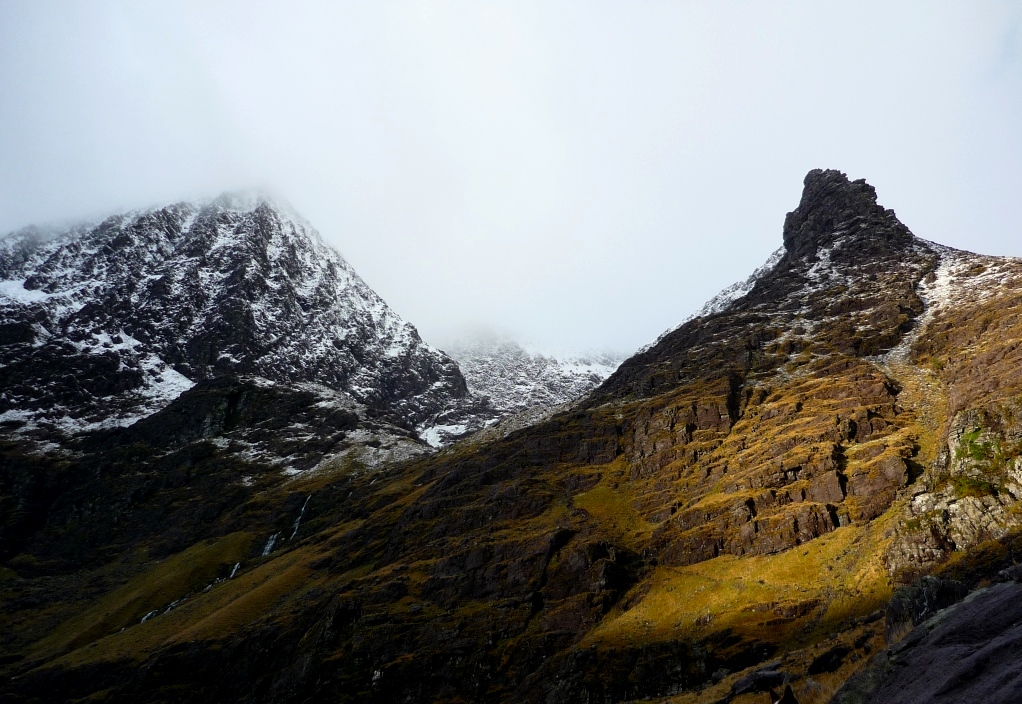
To the left - Ireland's highest mountain, Carrauntoohil (1039m) - snow-peaked and broody, during the winter of 2011. To the right is Stumpa na Saimh (the stump of the sorrels). Both of these peaks are popular hiking, ice and rock climbing destinations. In terms of impressive wildlife - the skies above are occasionally haunted by the imposing flight-silhouettes of white-tail eagles - a once native bird species that was reintroduced to Ireland less than 10 miles away from the Hag's Glen, in 2007 (Photo: Sean Fagan, County Kerry, southwest Ireland).
.
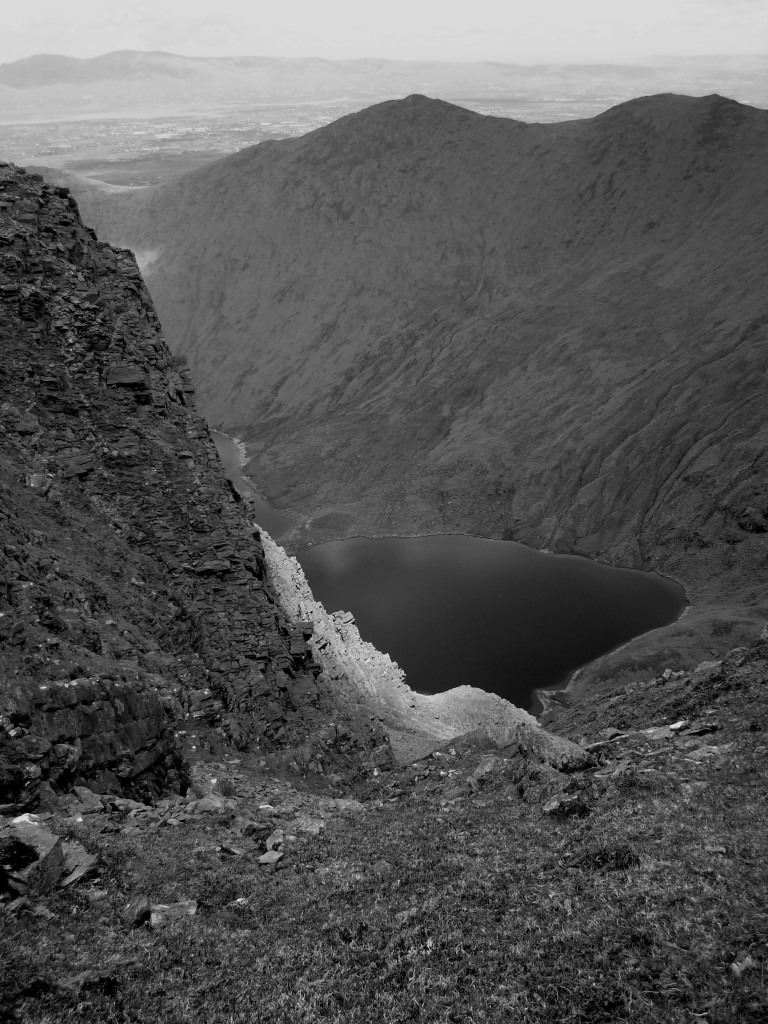
The magnificent Coomloughra valley - this vantage point was afforded from atop Caher peak (1001m). Supposedly, the lake below contains the rare ARCTIC CHAR (Salvelinus alpinus). Regardless of the presence or absence of arctic char - these lakes certainly teem with brown trout - which are easily seen during calm, summer days when they frequently cause ripples on the waters surface in pursuit of flies. In the distance, the beginning of the mountainous Dingle peninsula can be seen...another magnificent place (Photo: Sean Fagan).
.
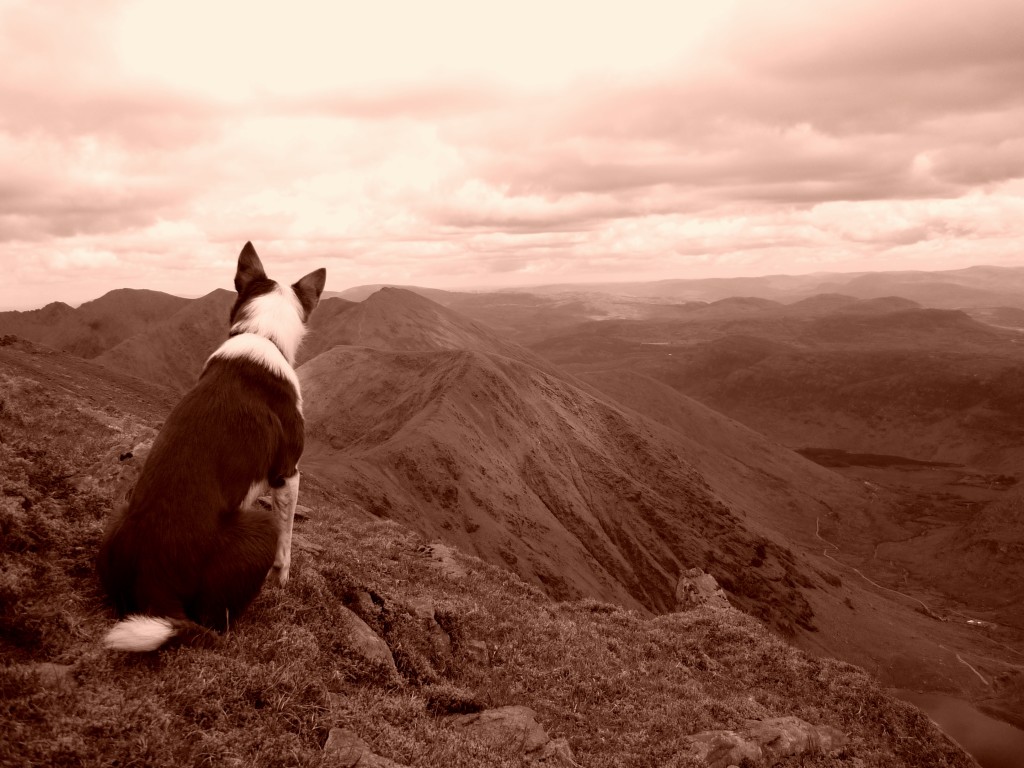
A former but fondly remembered dog of mine, Fossa - overlooking the stunning Black Valley, Southwest Ireland. Fossa was very fond of sitting atop a lofty, mountain perch and watching the valleys below. Nothing escaped his watchful eye - tumbling, playful ravens, hikers in the far distance...even clouds were duly watched. A special dog and an exceptional outdoor companion (Photo: Sean Fagan).
.
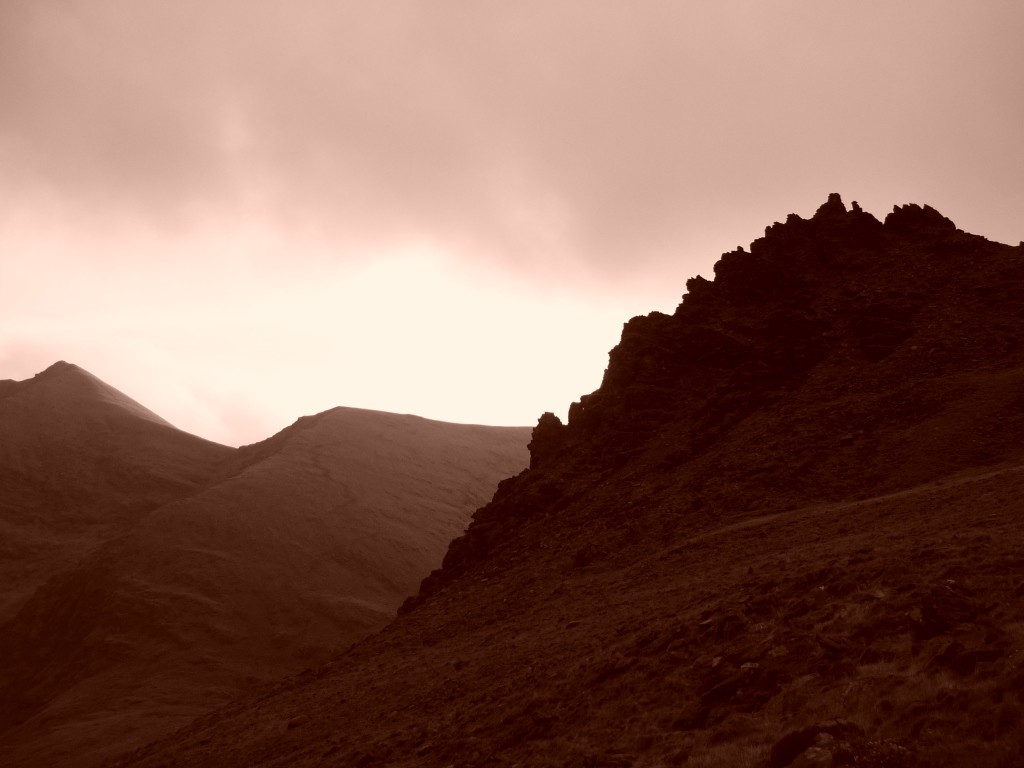
In foreground, the rocky ridge of Stumpa na Saimh (the stump of the sorrel), Hag's glen. Saimh is Gaelic for Sorrel - a type of wild plant. Wood sorrel (Oxalis acetosella) grow in great profusion throughout the valley slopes. There is an immense, desolate charm to the Hag's Glen - I hope this photo conveys that feeling (Photo: Sean Fagan).
..
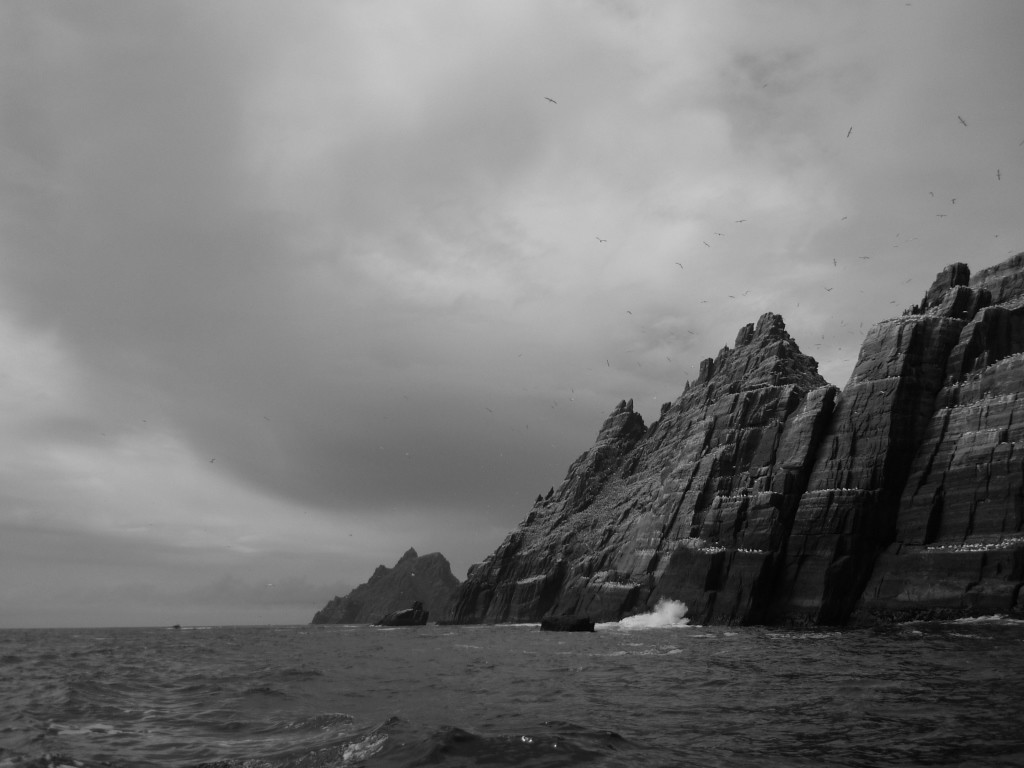
The magnificent Skellig Islands - a World Heritage Site located almost 8 miles off the coast of southwest Ireland. Sceilig Bheag (Little Skellig) is in the foreground and harbours one of the largest northern gannet colonies in the world (26,000 breeding pairs). In background - Sceilig Mhicil (Skellig Michael). Astonishingly, the remains of a 6th-8th century, early Christan monastery is located near the sharply-pointed pinnacle of Sceilig Mhicil. I've visited many wild places in Ireland but the Skellig islands, in my opinion, possess a unique and dare I venture, powerful energy (Photo: Sean Fagan).
.
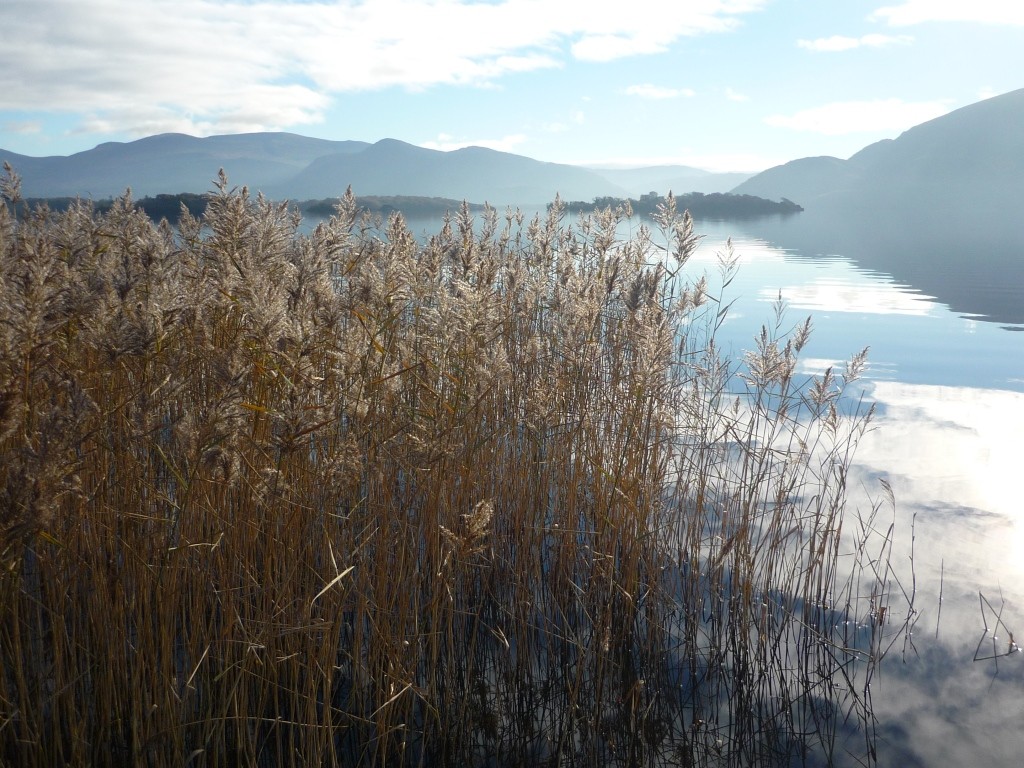
The reed-fringed shore of Lough Leine, one of the three large lakes situated in the famous 25, 425 acre Killarney National Park, southwest Ireland. Many parts of this wonderful lake is also fringed with Alder Carrs - a nationally rare and fascinating type of wet woodland in Ireland - where the flood-tolerant willow, birch and especially alder are the dominant tree species. The rich, fertile soils of alder carrs provides a great habitat for a diverse and profuse assemblage of wild plants - which in turn provides some exceptional grazing for the local, red deer population - especially important during the lean months of winter (Photo: Sean Fagan).
.
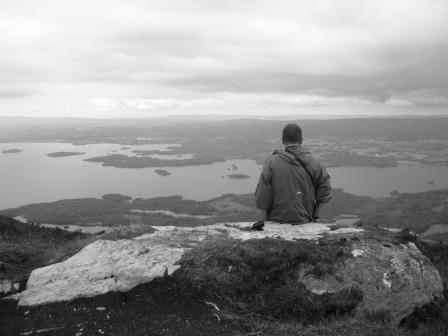
Myself, overlooking Lough Leine, Killarney National Park, from the peak of Torc mountain (Torc is Irish for boar or male pig), (Photo: Sean Fagan).
.
.
"...but here in the wilderness, surrounded by beauty without thought - the landscape carried me back to a life infinitely remote"
John Muir
.
.
Related articles found on this website:.
Links to locations featured in this post:- The Black Valley
- Carrauntoohil Mountain
- Killarney National Park (includes Lough Leine & Torc Mountain)
- Skellig Mhicil (Skellig Michael Island)
- The Northern Gannet (Moras basanna)(includes info about gannet colony on Skellig Bheag island).

Recent Comments